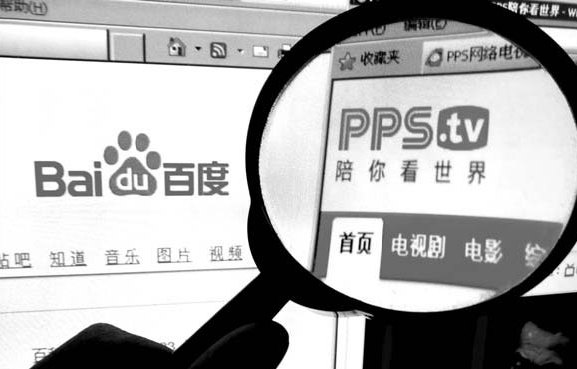The China Online Video Anti-Piracy Alliance recently announced a new campaign against online video piracy.
Founded in 2009 by some 110 online video providers and advertising firms, the alliance is largely focusing its efforts on Chinese search giant Baidu, which has been accused of facilitating online piracy.
Sohu Video, Youku Tudou, Tecent Video as well as five other related companies signed the declaration, saying "Internet and mobile Internet video piracy remains rampant in China" and "We call on the video industry, the copyright holders and film and television practitioners to work together to fight such piracy", according to a report from PR Newswire.
In the announcement, the coalition called on Baidu and other peers to "regularize their behaviors" and show respect to the video industry.
|

Baidu, China's largest search engine, is being sued for distributing pirated videos. Jing Wei / For China Daily
|
The famous online search portal Baidu is being sued by the alliance for sharing pirated videos by offering links and online play.
The alliance members collected evidence that more than 10,000 movies and TV episodes have been illegally disseminated by Baidu, and they asked for compensation to the tune of 300 million yuan ($50 million) in damages.
Yao Jian, chief technical officer of Youku Tudou, said Baidu is distributing content without authorization through four products - Baidu video search, Baidu Yingyin player, Baidu Video App and its TV stick, according to the official website of China Business Journal.
Zhang Chaoyang, chairman and CEO of Sohu, told Guangzhou Daily that Baidu has also been actively helping small and mid-sized video portals broadcast pirated works. He said Sohu has negotiated with Baidu on this issue for nearly two years, but nothing has changed.
Baidu denied these criticisms, citing figures purporting to show its efforts to combat the spread of illegal content online.
For example, the company claims that it removed more than 5.8 million links of various types of pirated videos during the past six months.
Also, it has developed an automatic screening system to block malicious sites and opened a 24-hour reporting hotline to protect copyright.
In addition, Baidu recently reached out to several video copyright owners in the hopes of reaching an agreement on authorized video broadcasts, according to a report from Beijing Times.
Users can register to become a super VIP member with a preferential price on Baidu Video to enjoy various types of genuine high-definition blockbusters.
Some industry insiders have said that the alliance's motives are not entirely altruistic. Local media have speculated that the dispute with Baidu could have more to do with gaining an upper hand in the market rather than being an effort to merely protect copyright.
Ding Chenling, a columnist for the Chinese website of financial magazine Forbes, said Baidu has already become the leader of the online video industry and its growing market share has brought great pressure to other online video portals.
Qian Hao, an Internet analyst, also said on his micro blog that the case reflects an immutable truth - commercial interests rule above all else.
haonan@chinadaily.com.cn
(China Daily 11/20/2013 page17)

